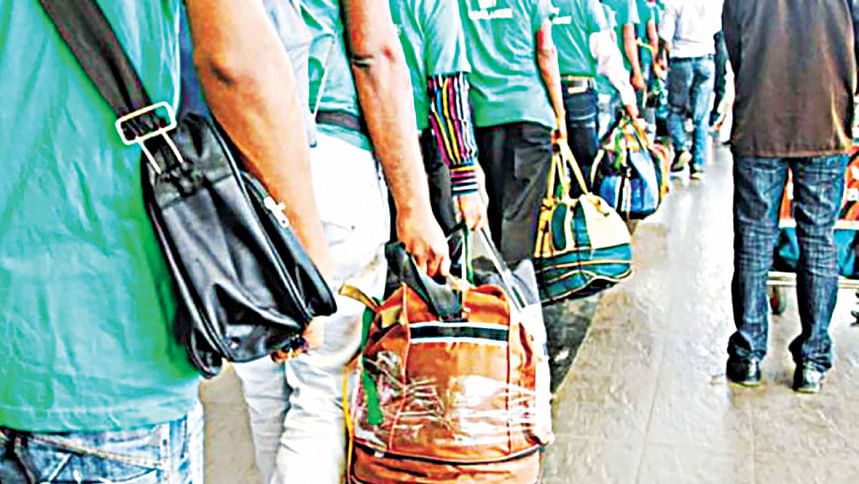Survey on untimely return of 218 migrants: Deportation, not getting promised job key reasons

Detention and subsequent deportation, unemployment, and violation of employment contract by not providing promised job and wage were among the key reasons behind untimely return of 218 migrants from abroad, found a telephonic survey.
Refugee and Migratory Movements Research Unit conducted the survey during October-November this year. The findings were revealed yesterday at a policy discussion at a city hotel.
Around 34 migrant workers were detained and deported -- 16 of whom did not have valid work permits while 11 of whom lacked valid visas.
Besides, 33 migrants returned after failing to find work while 44 others came back as they were not provided promised jobs and wages. Other reasons for return include employers' misconduct, low wage, and physical ailment, said the survey.

RMMRU founding chair Prof Tasneem Siddiqui said one objective of the survey was to prepare a "policy brief" and create scopes for advocacy groups to run campaigns on migrant workers' rights.
Workers often go abroad investing a significant sum only to return empty handed before completing their stipulated period of work. This has become a common phenomenon for the country's short-term migrant workers, she said.
All survey respondents, including 42 females, returned home in the post-pandemic situation, including 15 percent within a month, 14 percent within three months, and 29 percent within six months of their migration.
According to the survey, of the 116 respondents who went to Saudi Arabia, 51 percent returned between one and six months of migration.
On the survey, Salim Reza, full-time member of National Human Rights Commission, said the situation of about 15 percent (33 cases) migrants not getting job is "grave".
Efforts from Bangladesh, as a sending-country, alone will not be sufficient to address this situation if steps are not taken in the destination countries, said Salim, a former secretary of expatriates' welfare ministry.
"Destination countries have to be onboard," he said, adding, the government, civil society groups, and recruiting agencies must raise their voices during global forums to address such situation.
Also, scaling up migrant workers' skills training programmes is essential to ensure quality migration, he added.

 For all latest news, follow The Daily Star's Google News channel.
For all latest news, follow The Daily Star's Google News channel. 



Comments